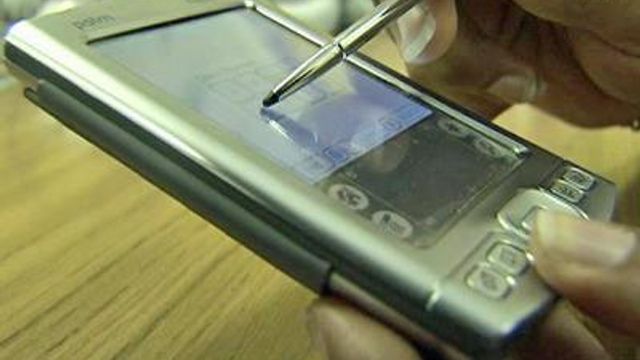Wireless devices helping teachers track students' progress
Some North Carolina teachers are using handheld wireless devices to track student progress in math and reading. It's a new statewide pilot program involving 42 schools in Cumberland, Halifax, Onslow and Sampson counties.
Posted — UpdatedAurelian Springs Elementary is one of three Halifax County schools taking part in the program. The devices teachers carry contain different exercises.
The teacher asks the questions, and the student answers. The teacher then records that in the device, but it tracks more than just right or wrong answers.
“It prompts us with several options – whether he knows it instantly, whether he had to count up (or) whether he had to guess,” said teacher Kevia Lynch.
By marking how the student came up with the answer, the software gauges how well the student is grasping number concepts.
“It gives me another way of assessing. (It) gives me another way of helping the kids out,” Lynch said.
Teachers can use that data to group kids based on their progress and tailor instruction accordingly. At a glance, a teacher can know how every student is doing.
“Pretty much everything is at your fingertips with this,” Lynch said.
Teacher Nancy Wilson also uses a wireless device in her kindergarten class and said she loves it.
“It tells you how they’re developing in their understanding of numbers and concepts,” she said.
Aurelian Springs Elementary volunteered to be part of the program, which was offered to all school districts across the state.
“We have to be data-driven in order to understand how an instructor is getting across to the children,” said Aurelian Springs Principal Carla Amason.
The program started in November and will last for one year. State education leaders said they are hoping to extend the program to 18 months so they have more data to examine.
• Credits
Copyright 2024 by Capitol Broadcasting Company. All rights reserved. This material may not be published, broadcast, rewritten or redistributed.





